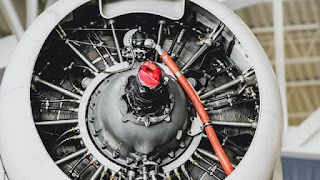Are Hydraulic Brakes Better Than Mechanical Brakes?
Many of us have been hearing about the benefits of using hydraulic brakes on our vehicles. But are they really better than mechanical brakes? The most important benefit of using hydraulic brakes is that you can stop your car in the shortest distance possible. They are very effective and efficient in stopping the vehicle in a very short time. So, if you want to stop your vehicle as quickly as possible, then use hydraulic brakes. You will never be disappointed with this type of brake because they offer you the best possible solution for stopping your vehicle. Another advantage of using The 3 Keys to Successful Hydraulic Design brakes is that these brakes are not affected by external elements like extreme temperature or weather conditions.
What are hydraulic brakes?
Hydraulic brakes are a type of brake in which a fluid, usually oil, is forced through an automatic mechanism under pressure, creating friction between two surfaces, thereby stopping a vehicle or machine. They were invented by James Lunsford. He patented his invention on September 16, 1893. In 1902, he sold the patent rights to the Ford Motor Company for $100,000 (worth around $1 million today). The first automobiles had no brakes. Most early cars did not even have a hand brake.
When hydraulic brakes were first invented, they were quite difficult to use. The pressure of the brake would sometimes leak out and cause the car to drive off. Later models had the "service brakes", which were used for repairs, and they worked perfectly. Some cars had "master" brakes, which were operated manually by a person, and were used for emergencies. The "parking brake" was also a popular feature. These were operated by hand and were used to hold the car in a parked position when it was parked. The parking brake worked by applying a large amount of pressure to the brake pedal, which compressed the brake pads against the brake drum. There were some types of cars that had "automatic" brakes. This was similar to the service brakes, but instead of having a service brake, it had an automatic brake.
what are mechanical brakes?
Mechanical brakes are still used by many vehicles on the road today, though modern braking systems are often hydraulically operated, using brake fluid (which contains oil) to pressurize brake pads against rotors to slow down a vehicle. Brakes may also be electro-mechanical, using electromagnets instead of hydraulic pistons. Brake fluid is a fluid used to slow or stop a vehicle. It is a mixture of water, glycerin, and various chemicals. It is usually stored in a container near the brake pedal or wheel.
Hydraulic vs Mechanical Brakes
Hydraulically actuated brakes apply pressure to the brake pads via hydraulic fluid, while mechanically actuated brakes exert force on the brake caliper by pushing on the brake pads. Hydraulic brakes have a significant advantage over mechanical brakes since hydraulic pressure can be adjusted according to brake pedal travel and speed of travel. However, mechanical brakes generally have lower power loss and higher wear resistance than hydraulic brakes.
If you want a brake system with the highest safety rating, you can opt for hydraulic brakes. Hydraulic brakes apply pressure to the brake pad by means of hydraulics. In case of an emergency, hydraulic brakes can be instantly applied. With hydraulic brakes, there is a direct connection between the brake pedal and the calipers. Hydraulic brakes are reliable since there is no leakage or spillage of oil. Since it has the highest safety rating, hydraulic brakes are ideal for heavy duty applications. On the other hand, mechanical brakes can be used in almost all vehicle types. Mechanical brakes use a wedge-shaped device to push the brake pads against the rotor. Mechanical brakes are simple and easy to maintain.
They are not as reliable as hydraulic brakes. However, mechanical brakes are cheaper and more economical to operate. Which type of braking system is best for your vehicle? The type of braking system that you choose depends on your budget, your driving needs, and your preferences. For example, if you need a vehicle with good gas mileage and you have a tight budget, then a hydraulic brake system is the right choice for you. On the other hand, if you prefer a powerful brake system, then a mechanical brake system is the ideal choice for you.
Hydraulic brakes provide a smooth and quiet ride at the cost of not being as powerful or reliable as mechanical brakes. However, there are some advantages of hydraulic brakes that mechanical brakes don’t offer:
• There is no noise when the brake pedal is pushed, making it easier to hear the car’s signal lights than it is to hear a loud noise coming from a mechanical brake system
• Hydraulic brakes require less maintenance than mechanical ones
• If the fluid reservoir runs low, the brakes will automatically adjust by pumping fluid into the system
• The brakes can be adjusted while the car is moving
• You can choose whether to have the brakes apply to the rear or both the front and rear wheels
• They are safer and do not rely on the strength of the driver to operate
In conclusion, it’s important that we understand the benefits and the differences between hydraulic brakes and mechanical brakes. There are pros and cons for both types of brakes. Hydraulic brakes have a better pedal feel, as well as being cheaper to maintain and repair. Mechanical brakes have a more reliable performance, which means less downtime. So, based on our investigation into this question, hydraulic brakes are better than mechanical brakes. However, they’re not perfect. There are still some concerns for hydraulic brakes. They may wear faster, so you’ll have to perform maintenance more frequently. They can also fail, and that will lead to downtime for you and your customers.


Comments
Post a Comment